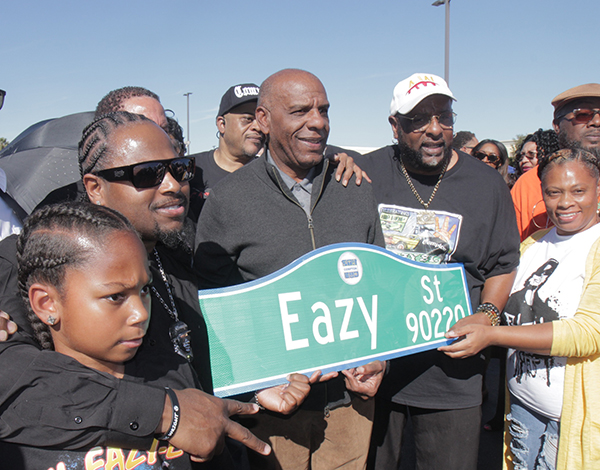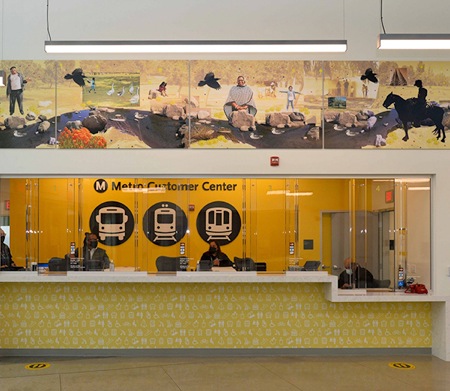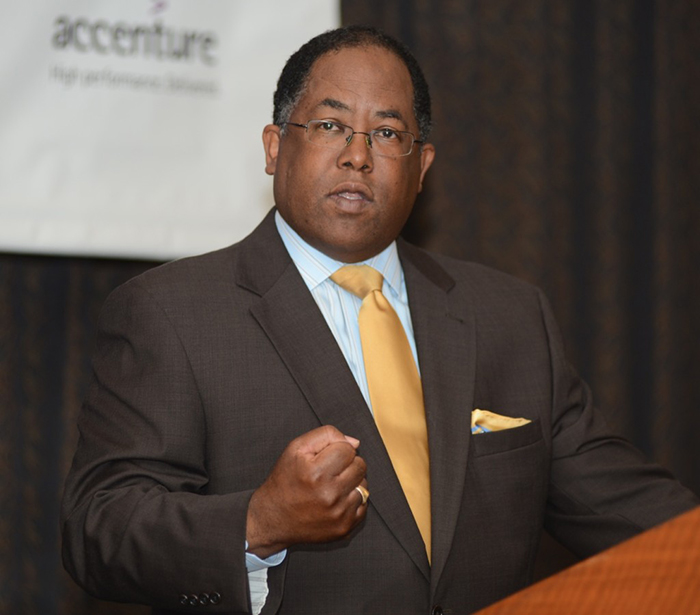Vicious beating symbolizes racial hate in California

By Janice Hayes Kyser
Contributing Writer
SAN FRANCISCO — South African immigrant Wendy Drew learned a lot about hate and ethnic bias growing up during apartheid in the big-city metropolis of Durban.
As she encountered bias and second-class treatment in a segregated nation, however, Drew was always taught to stand up for herself and never yield to racial prejudice or hostility.
That spirit of resistance prompted Drew, a prominent Bay-area chef, to challenge a man who unexpectedly called her the “N word” outside a San Francisco bar on Sept. 1. Moments later, Drew— a former star of the Netflix series, “You Are What You Eat: A Twin Experiment” — was being brutally pummeled, ultimately suffering a broken nose and a horrible eye injury.
Nearly three weeks later, the physical wounds are healing, but the mental and emotional wounds are still very raw, Drew says.
“I’m having trouble sleeping,” says the 42-year-old chef, who runs a catering business with her identical twin sister, Pamela, that provides South African cuisine for a number of tech companies, pharmaceutical firms and individuals in the Bay Area.
“I keep replaying the incident in my head,” she says. “There’s a small part of me that wonders if I should’ve kept my mouth shut. Then there’s a bigger part of me that says, no, you had to speak up; to fight back and thank God you had the strength to do so and people came to your aide.
Still, it’s hard. I am paranoid. I am an independent person who is now afraid to go out by myself without wondering if someone is following me or looking to do me harm.”
As tragic as Drew’s story is, it’s far from unique.
More than 518 Black people were victims of reported hate crimes in California last year, with most of those crimes occurring in Los Angeles County, according to a report by the California state attorney general.
The report shows that while hate crimes against Black people dropped 20.6% in 2023, Blacks were still the largest victim group by far — as it has been in recent years.
“In the past few years, we’ve witnessed hate-filled rhetoric become more heated, more polarizing, more dangerous across the country and unfortunately, California is no exception,” California Attorney General Rob Bonta said in a statement.
“These are more than just statistics on a page. Each data point represents real people hurt by hate, real families affected by incredible pain and hardship and we know these numbers only tell part of the story while thousands suffer in silence,” Bonta said.
Under California law, a hate crime is a criminal act committed at least in part because of a victim’s real or perceived disability, gender, nationality, religion, sexual orientation or race or ethnicity — or association with someone with one or more of those characteristics.
A burning desire to fight back against injustice made it impossible for Drew to stay silent.
Haunted on the one hand, grateful on the other, Drew says the perpetrator, a homeless man who was on probation and has assaulted others, hopes her attack spared someone else’s life.
“Maybe instinctively God was using me because he knows my strength. … Maybe someone else’s life could have been taken and I was a diversion,” she said. “I kept telling my attacker while I was pushing him and fighting back, you are going to jail today and he did and that may have saved someone else’s life.”
On that fateful night, she and her twin were out at a restaurant and bar, Café Terminus, pitching a canned adult beverage they created to bar management. Drew got a phone call as their meeting was wrapping up and stepped outside to speak to her mother who lives in the East Bay. That is when her attacker lobbed a racial epithet that turned into an assault Drew says she never saw coming.
“I thought we were just going to get into a shouting match and I was ready to do that,” she said. “I had no idea what was going to happen next. I had no idea he would start hitting me in the head with his fists.”
Drew says before she and her sister came to the U.S. some 19 years ago, her uncle sat them down and gave them the “talk” many Black Americans give to their sons and daughters about how to interact with the police.
“He told us to keep our hands visible and to address the police by calling them ma’am and sir,” she said. “I always thought my abuse would come at the hands of law enforcement; I didn’t ever think it would be a citizen I encountered on the street.”
San Francisco District Attorney Brooke Jenkins formally charged Drew’s attacker, Irvin Rivera-Lara, 31, with assault likely to cause great bodily injury and battery with serious bodily injury. The charges include special allegations that the incident was a hate crime.
Rivera Lara Irvin Rivera-Lara, 31, is a homeless man with a violent criminal history
“Hate crimes have no place in our community and must be addressed swiftly by the criminal justice system,” Jenkins said in a statement. “Attacks like this demean and degrade individuals while also shaking whole communities. I will do everything in my power to ensure there is accountability and justice in this case.”
Drew says the police treated her well and made her feel heard and safe after the incident. She is cautiously optimistic that the legal system will deliver justice.
In the activist spirit of her parents, Drew was not going to suffer in silence. She begin reaching out to contacts she has in the media so she could tell her painful story. Silence, she says, was not an option.
“In order to make change, you have to make noise,” she said. “I keep talking about it because I would like people to understand that hate is never acceptable it causes a lot of emotional pain. I look in the mirror and I can see the evidence that someone without knowing me as a person thought it was OK to make me their punching bag. That is the most painful part.”
In spite of her pain and anger, Drew said she wants to understand what motivated her attacker.
“If I could speak to him, I would ask him why, why would you do this and what do you need to remove the hate from your heart so you can be a better person?”
This resource was supported in whole or in part by funding provided by the State of California, administered by the California State Library via California Black Media as part of the Stop the Hate Program. The program is supported by partnership with California Department of Social Services and the California Commission on Asian and Pacific Islander American Affairs as part of the Stop the Hate program. To report a hate incident or hate crime and get support, go to CA vs Hate.
Janice Hayes Kyser is a freelance reporter for Wave Newspaper.





